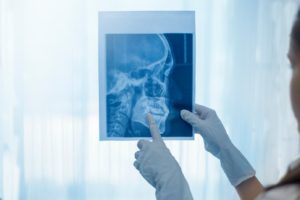
TMD is a complex condition that can cause persistent jaw pain and have a significant impact on your quality of life. If you have been diagnosed with this problem, you may be able to find long-term relief by visiting an oral surgeon who offers TMJ treatment. What can you expect with TMJ surgery? This blog post provides some useful information.
Do You Need Surgery?
There are a number of different ways to treat TMD, from simple at-home remedies to complex surgery. If you have recently been diagnosed with a problem in your jaw joint, do not automatically assume that you need major surgery. Doctors, dentists, and oral surgeons alike favor conservative options whenever possible.
If you have already tried conservative methods, or an examination reveals that your condition would be unlikely to respond to noninvasive treatments, it may be determined that surgery is the best option for you.
What Is Involved in TMJ Surgery?
It is important to understand that there are multiple surgical procedures that can be used to relieve problems within the temporomandibular joint (TMJ). The most common, known as arthrocentesis, involves the insertion of a small needle that that irrigates the joint and removes debris. Another option is called TMJ arthroscopy, wherein the surgeon aims to explore the problem and provide treatment during the same procedure. Arthroscopy is a same-day surgery that takes place under general anesthesia.
Of course, in some cases, more extensive procedures are necessary. Some patients require jaw joint replacement, open joint surgery, or corrective surgery on the lower jaw (rather than on the joint itself).
Before your procedure, your surgical team will walk you through what you can expect during and after the procedure. They will strive to make you as comfortable as possible throughout your entire experience.
When Will You Notice the Benefits?
You may experience some soreness and other discomforts after your surgery. Your recovery time will depend largely on how invasive the procedure was. Be patient with yourself and follow all of your surgeon’s post-op directions. For example, you might need to stick to a modified diet for a while, get plenty of rest, take certain medications, or take other steps to facilitate your body’s healing process.
Once you are fully recovered, it is very likely that you will notice improvements in how your jaw functions. Your TMD symptoms might even completely disappear.
The prospect of undergoing TMJ surgery can be intimidating, but there is no need to fear it. It can be an important milestone on your path to an improved quality of life!
Meet the Practice
Dr. Sheng Ji is a board-certified oral and maxillofacial surgeon who proudly serves the Carmichael, CA, community. He and our team offer a range of TMJ treatments. If you are suffering with pain in your jaw or related symptoms, we would be happy to assess the situation and recommend your next steps. Get in touch with us at 916-961-1902.
